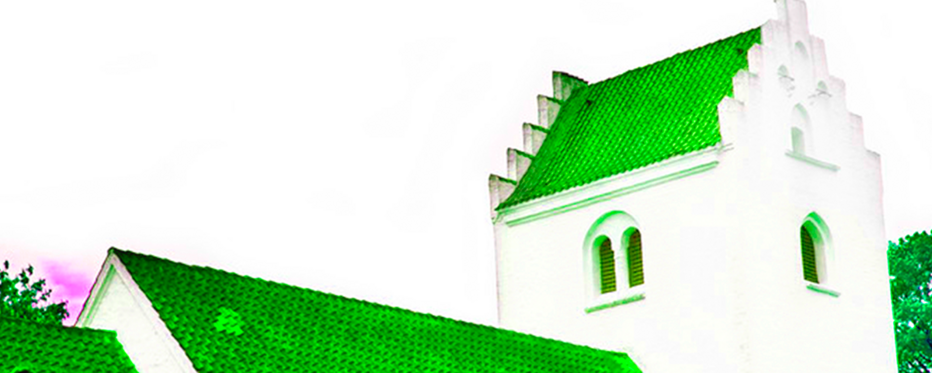God's creation
The Bible teaches that the earth and everything on it, the sea and everything in it have been created by God. The creation stories in Genesis, the first book of the Bible, chapters 1 and 2, show how God created the world and gave it to man to enjoy and to take care of. We have been entrusted with the responsibility for the stewardship of the earth, to protect and defend creation.
Local initiatives going green
Many parish churches are conscious of their responsibility as Christians to protect the earth and its resources, and many concrete initiatives have been taken to care for the environment. These initiatives include special services with a focus on creation, ways to reduce the electricity consumption and the buying of organic and/or fairtrade products. A growing number of parish churches commit themselves to being green. This means that they engage to follow a set of recommendations regarding worshipping, teaching and information, use of electricity, water and heat, transportation, shopping and waste treatment.
Grøn Kirke (Green Church) is an initiative launched by the National Council of Churches in Denmark. Grøn Kirke's purpose is to inspire and motivate individuals, congregations, churches, cemeteries, schools and faith based organizations to engage in the green transition and promote sustainability. The Evangelical Lutheran Church in Denmark is one of the member churches of the council and many of the local congregations are part of the green church network committing themselves to work on the green agenda in both theology and practical matters. Learn more about Grøn Kirke and find the green churches on a map. Read more here.
Green Transition of
The Evangelical Lutheran Church in Denmark (ELCD)
The Green Transition of The Evangelical Lutheran Church in Denmark is established in 2022 on a common initiative from the Danish Bishops (Chair), the Association of Deans, the National Association of Parish Councils and The Ministry for Ecclesiastical Affairs to help ELCD move in a greener direction and implement more sustainable practices on both a national and local level.
The work is centered around providing knowledge, counselling and inspiration on 5 impact areas:
- Promoting sustainable land management to reduce climate and environmental impacts and increase biodiversity
- Reducing climate and environmental impacts from procurement and transportation
- Reducing climate and environmental impacts from energy consumption
- Improving waste management and reducing climate and environmental impacts
- Contributing to society through inspiration and co-creation
Among ongoing initiatives are arranging online webinars, developing green guides and materials, collaborating with a variety of public, church based and other organizations and helping local churches develop green strategies and practices.
Find more information: https://folkekirkensgroenneomstilling.dk
Global responsibility
Christianity is called a universal religion because Christians believe that God has created the universe and everything living in it, and that Jesus Christ has come to save and restore the world, that is, not only human beings but the entire creation. When Jesus became man and lived on earth, God's Kingdom too made its entry into the world. Since then Christians have taken part in the building of God's Kingdom – that is the restoration of relationships between God and man, between people and people groups, and between man and creation – by engaging in mission and development aid.
Want to take responsibility?
If you want to engage in environment and climate issues on either a local or a global level, you may contact your local parish church, the National Council of Churches in Denmark or Gronkirke.dk. If you want to know more about church, environment and climate change, these might be able to provide some material or to direct you to someone who can. For example Gronkirke.dk has a list of links, some of which lead to English language websites.



